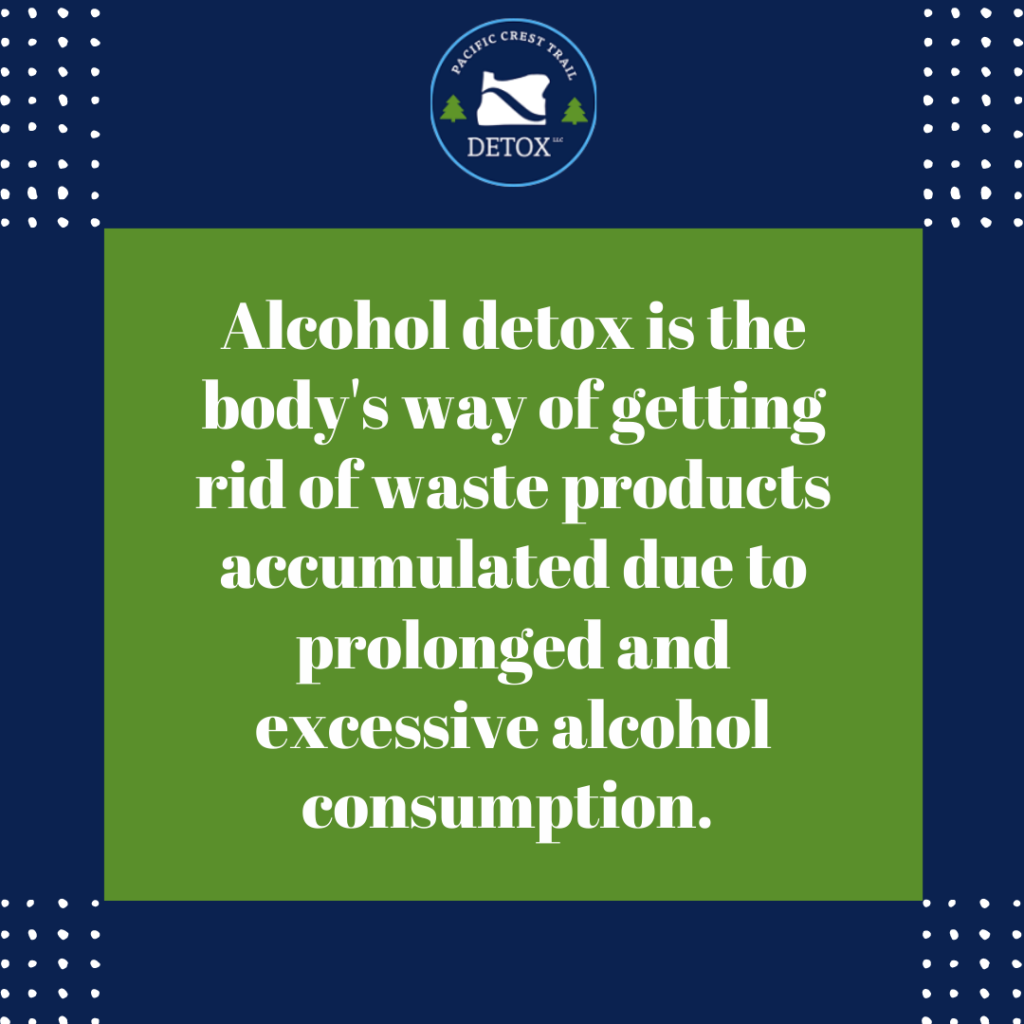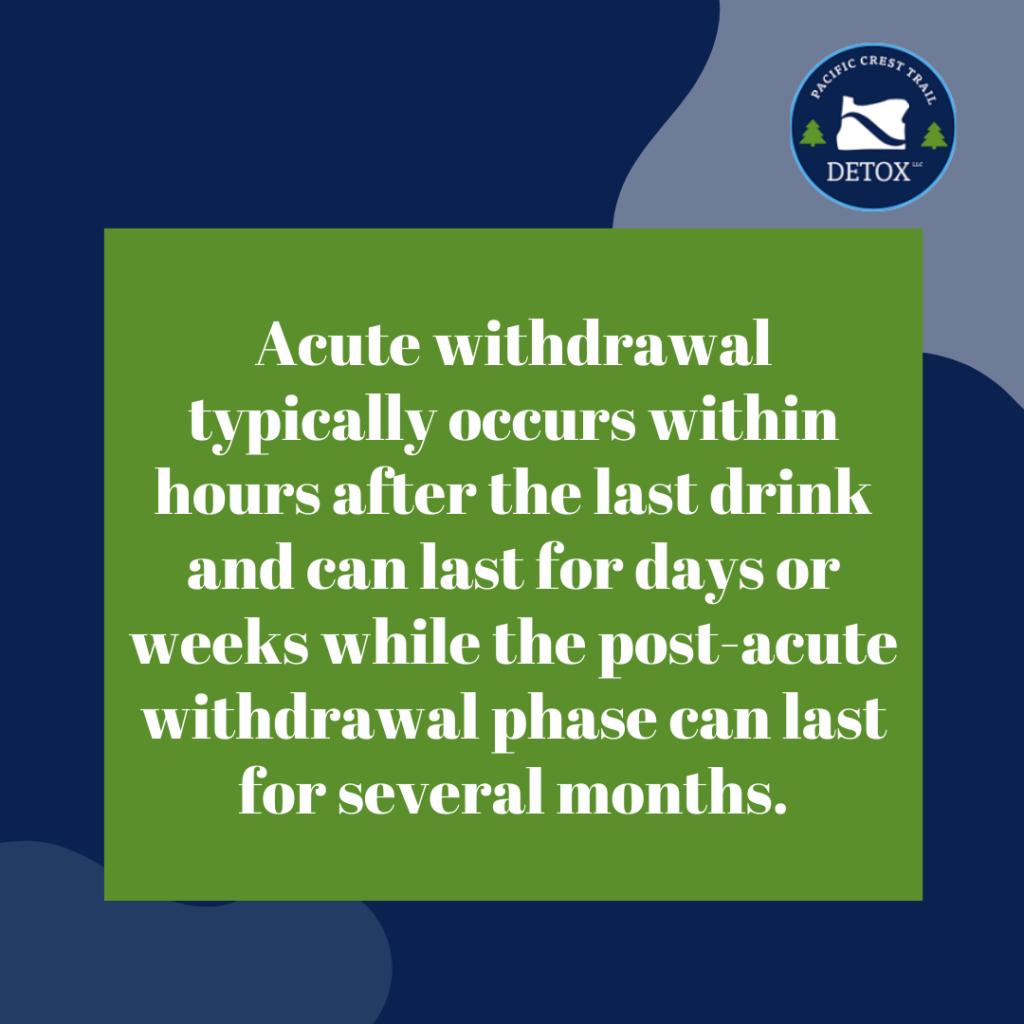Alcohol Use Disorder, or AUD, is characterized by problematic alcohol consumption that leads to significant distress and impairment in one’s life. Individuals with AUD may experience withdrawal symptoms when they suddenly stop drinking. This can be uncomfortable and even dangerous, highlighting the significance of detox. What is alcohol detox? It is the process of systematically eliminating alcohol from the body, a crucial phase often experienced at the onset of one’s recovery journey. This process is critical for those whose bodies have chemically acclimated to the regular presence of alcohol.
Continue reading as we discuss the process and the duration of detoxification, as well as the available support services and treatments. By shedding light on these aspects, we aim to provide a comprehensive understanding of alcohol detox and its importance in addiction recovery.

What is Alcohol Detox?
It is the body’s way of getting rid of waste products accumulated due to prolonged and excessive alcohol consumption. During this activity, the body cleanses itself from the harmful effects of alcohol.
Its purpose is to assist individuals in safely managing the withdrawal symptoms that arise when alcohol consumption is abruptly halted. During detox, the body undergoes a readjustment phase as it adapts to functioning without alcohol.
Professional supervision is paramount during the detoxification process. Withdrawal symptoms can cause mild discomfort to severe complications. This is where the expertise of medical professionals comes in. They ensure that individuals receive appropriate care and support, minimizing the dangers associated with withdrawal.
Alcohol detox programs near me, such as the one offered by Pacific Crest Trail Detox, are tailored precisely to your unique needs.
What Happens to the Body During Alcohol Detox?
During alcohol detox, the body undergoes physiological changes as it adapts to the absence of alcohol. One of the primary changes is the restoration of the body’s natural balance.
Liver function improves, allowing for better processing and elimination of toxins. Additionally, brain chemistry stabilizes as alcohol’s depressant effects are gradually reversed.
Alcohol detox generally consists of two phases: acute withdrawal and post-acute withdrawal. Acute withdrawal typically occurs within hours after the last drink and can last for days or weeks.
Following the acute withdrawal phase, individuals enter the post-acute withdrawal phase, which can last for several months.
Here are the common side effects during withdrawal:
Phase 1: During Acute Withdrawal
- Anxiety
- Visual and auditory hallucinations
- Convulsions
- Whole body tremor
- Nausea
- Vomiting
- Insomnia
- Profuse sweating
- Shakiness
- Hypertension
- Heart failure
Phase 2: During Early Abstinence
- Anxiety
- Restlessness
- Insomnia
- Diminished appetite
- Mood swings
- Depression
The importance of medical monitoring and support cannot be overstated during the detox process. Withdrawal symptoms, particularly in severe cases, can pose serious health risks.
Medical professionals play a crucial role in managing these symptoms. They can provide medications to ease discomfort, prevent complications, and carefully monitor vital signs.
This professional support is vital in mitigating potential risks and increasing the chances of a successful detoxification experience.
How Long Does Alcohol Detox Take?
The length of alcohol detox varies depending on individual circumstances. On average, the acute withdrawal phase of alcohol detox lasts for about one to two weeks. During this phase, individuals may experience the most intense withdrawal symptoms.
Following this phase, the post-acute withdrawal phase continues for several months. It involves a more gradual resolution of symptoms and the brain’s gradual recovery from the effects of long-term alcohol use.
Various factors, such as the severity of alcohol dependence, overall health, and any co-occurring medical or mental health conditions, can influence the duration of alcohol detox. Some individuals may require longer detoxification and benefit from extended support and treatment.
It is crucial to seek professional medical guidance and support during the alcohol detox process to ensure safety, proper management of symptoms, and a successful transition to recovery.

What is a 3-Day Alcohol Detox Program?
A 3-day alcohol detox program is a detoxification program that helps individuals withdraw from alcohol within a condensed time frame. It caters to those with milder alcohol dependence or who have undergone a more extensive detoxification process and require additional support to manage any remaining withdrawal symptoms.
During treatment, medical professionals closely oversee individuals throughout the program to ensure their safety and well-being. Medications may help alleviate withdrawal symptoms and provide comfort during the detox process.
It’s important to note that a 3-day alcohol detox program is only the initial step in the recovery journey and should be followed by ongoing treatment, therapy, and support to address the underlying causes of alcohol dependence and promote long-term sobriety.
Support Services and Treatments during Alcohol Detox
During detox, you may access a range of support services and treatments that will address your physical, emotional, and psychological needs.
Counseling and therapy sessions are integral components of alcohol detox programs. These sessions allow individuals to explore the underlying causes of their alcohol dependence, develop coping mechanisms, and learn relapse prevention strategies. Individual therapy, group counseling, and family therapy are commonly offered to address various aspects of the recovery journey.
In addition to traditional counseling and therapy, holistic treatments are often incorporated into detox programs. These treatments focus on healing the whole person, encompassing physical, mental, and spiritual well-being.
Furthermore, nutritional support is vital during alcohol detox. Nutritional counseling ensure that individuals receive proper nourishment, as alcohol dependence can often lead to malnutrition and imbalances in essential nutrients.

In conclusion, alcohol detox is a vital and transformative step towards achieving sobriety and overcoming alcohol use disorder. It involves the systematic elimination of toxins from the body, allowing individuals to heal safely. Throughout detoxification, individuals may experience withdrawal symptoms, highlighting the importance of seeking professional help.
Choosing a warm and supportive alcohol detox center, such as the Pacific Crest Detox Trail in Oregon, can significantly improve the detoxification experience. If you know someone ready to embark on a sober, healthier life, don’t hesitate to seek professional help. Call us today!

